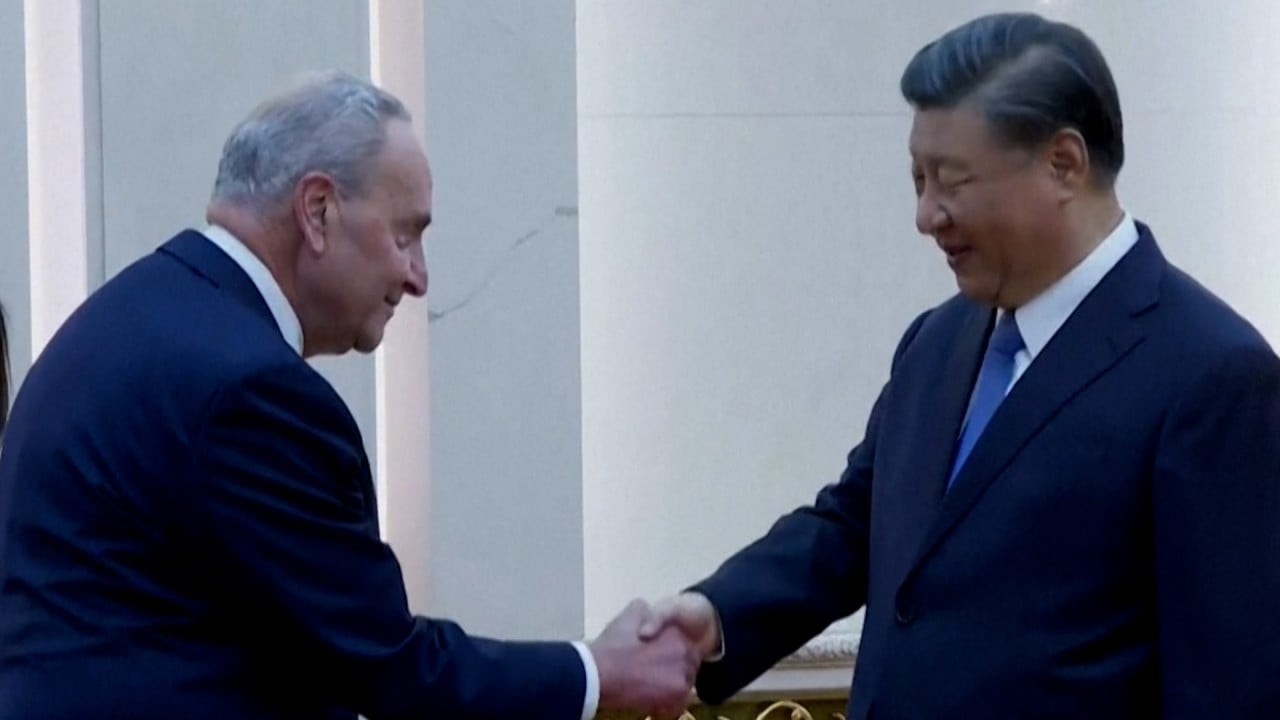
China’s commerce chief presses US Senate leader Chuck Schumer over trade restrictions
- During ‘rational and pragmatic’ talks on Monday, Wang Wentao told the Senate majority leader that China wants the US to define its security boundaries
- Commerce minister added that US-China competition should be ‘fair and constructive’ and based on international trade rules
China’s commerce minister “specifically” raised concerns over American restrictions on trade and technology during a meeting in Beijing with visiting US Senate Majority Leader Chuck Schumer, according to a statement by China’s Ministry of Commerce on Tuesday.
During discussions on Monday that were described as “rational and pragmatic”, Wang Wentao said China hoped the US could “precisely define security boundaries and avoid overgeneralising and politicising security issues, and weaponising [commerce and trade activities with China].”
US senators defy backlash at home to test China’s engagement first-hand
Wang said China was willing to work with the US to create a favourable business environment that could boost bilateral trade.
Schumer said Washington wants to strengthen communications and exchanges with Beijing, adding that both congressional Republicans and Democrats value the bilateral economic and trade relationship and do not seek “decoupling” from China, according to the readout.
The discussion was among a series of meetings the US delegation has held with the Chinese leadership since arriving in Shanghai on Saturday as part of their three-country tour, with trips to South Korea and Japan to follow.
The visit marks the first US congressional visit to China since 2019 and is seen as a move to help lay the groundwork for a potential meeting between the US President Joe Biden and Chinese President Xi Jinping at the Asia-Pacific Economic Cooperation summit in San Francisco in November as a series of trade disputes continue to simmer.
Concerns over trade restrictions also came up when the US delegation met Xi, who told them the two countries “do not necessarily have to head to a confrontation”, adding that the economies of both countries are “deeply intertwined”.
China, US need not go head to head, Xi Jinping tells American senators
In addition to meetings with the commerce minister, the US delegation also met Foreign Minister Wang Yi and Shanghai’s Communist Party chief Chen Jining.


